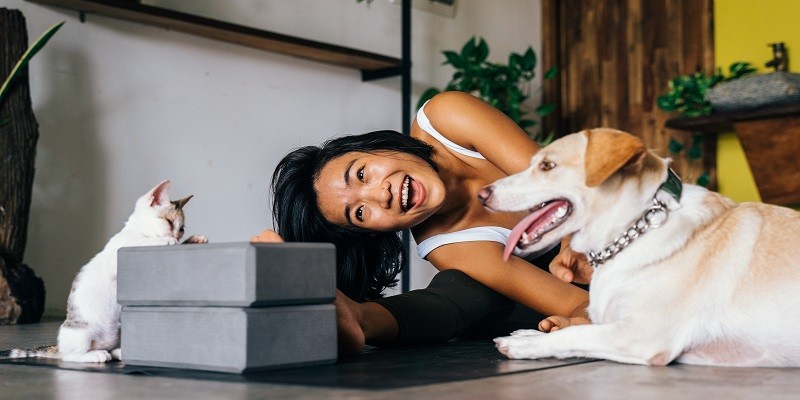As one of the most popular pets in the world, dogs have been sharing humans’ homes for thousands of years. While it’s true that modern dogs are all descendants of wild wolves, the historical relationship with humans has given them a special place in our society.
The image of a ‘faithful hound’ that goes above and beyond to help out humans has its basis in reality, with assistance dogs often helping their owners to be independent and working dogs assisting the police and armed forces. So it’s only natural that dogs feel more like one of the family than some other pets, so it’s especially important to care for them properly including finding them the right cover and things such as:
Training
Dogs like to know what’s expected of them and basic training helps them to feel secure and allows you to communicate with them. If your dog can follow simple commands, you can help keep them safe both in your home and when you are out together.
Well-trained dogs are also much easier for vets to handle, so it’s important to get your dog used to being examined by teaching them commands that will help a vet during a check-up. Some of the most important commands to teach a dog are:
- Heel
- Come
- Sit
- Lie down
- Roll over
- Down
- Stay
- Wait
- Leave
- Drop
Good training means you can call your dog back when there’s danger around, prevent them from picking up things that could hurt them, and keep them mentally active.
Good diet
Most dogs are at their best when fed twice a day, but portion size is more important than frequency. So long as your dog is eating the right amount of food in a day, the number of meals is less important.
Dogs are omnivores that usually need a balance of foods to keep their bodies healthy and keep their coats in top condition. Depending on their breed and health, they can eat a wide variety of foods from kibble and canned food to fresh meat and fish.
Your vet will recommend an eating plan that suits your dog’s breed, weight, activity levels, and age. There are dog foods out there to suit any dietary requirements, although many dog owners choose to prepare their dog’s food themselves.
Regular exercise
The amount of exercise a dog needs is an individual thing based largely on their size and breed, although their age plays a role as well. Dogs that have been bred for their herding skills and those raised for sport tend to need the most exercise, including:
- Retrievers
- Spaniels
- Collies
- German Shepherds
- Pointers
Many smaller breeds, such as pugs and Pomeranians, tend to need less exercise meaning that they are better suited to owners that have limited outdoor space. However, all dogs need some time outside to allow them to run around, so it’s important to have some safe places to take your pet.
Much like humans, dogs are often at their happiest when they can stretch their legs and give themselves a good workout, so it’s important to ensure that you make time to burn off energy and have some fun with your pup.
Enrichment
Dogs are quick learners and have active minds and will often thrive on having a challenge. This can be as simple as stuffing treats into a toy so that they have to work to get it out, but it could also mean something more formal like agility training.
There are plenty of games that you can play with your dog to stimulate their natural abilities and give them the sense of satisfaction that only comes from achieving something. You can research the things that your breed is known for a give them to games that require these qualities to help them ‘win’.
Even the most placid dogs benefit from being outside every so often, and your vet will be able to recommend types of training or games that will benefit your dog the most.
Regular vet appointments
It’s good to get in the habit of seeing your vet regularly so that you know your dog is up to date with all their pet vaccinations, worm and flea treatments. Your vet can also use this time to check your dog’s weight and keep an eye out for breed-specific conditions or illnesses.
Building a close relationship with your vet can be hugely helpful for your dog as they are much more likely to be relaxed about any treatment they might need if they are familiar with the setting and the people there. It will also help your vet to know what is ‘normal’ for your pet when it comes to treating any injuries or unusual behaviour.
The special relationships that dogs have with their owners allow them to thrive under the right conditions and most dogs can live long and happy lives with just routine care. If you can meet your dog’s needs, you can both enjoy each other’s company for years.
Last Updated on May 10, 2025 by Pauline G. Carter

